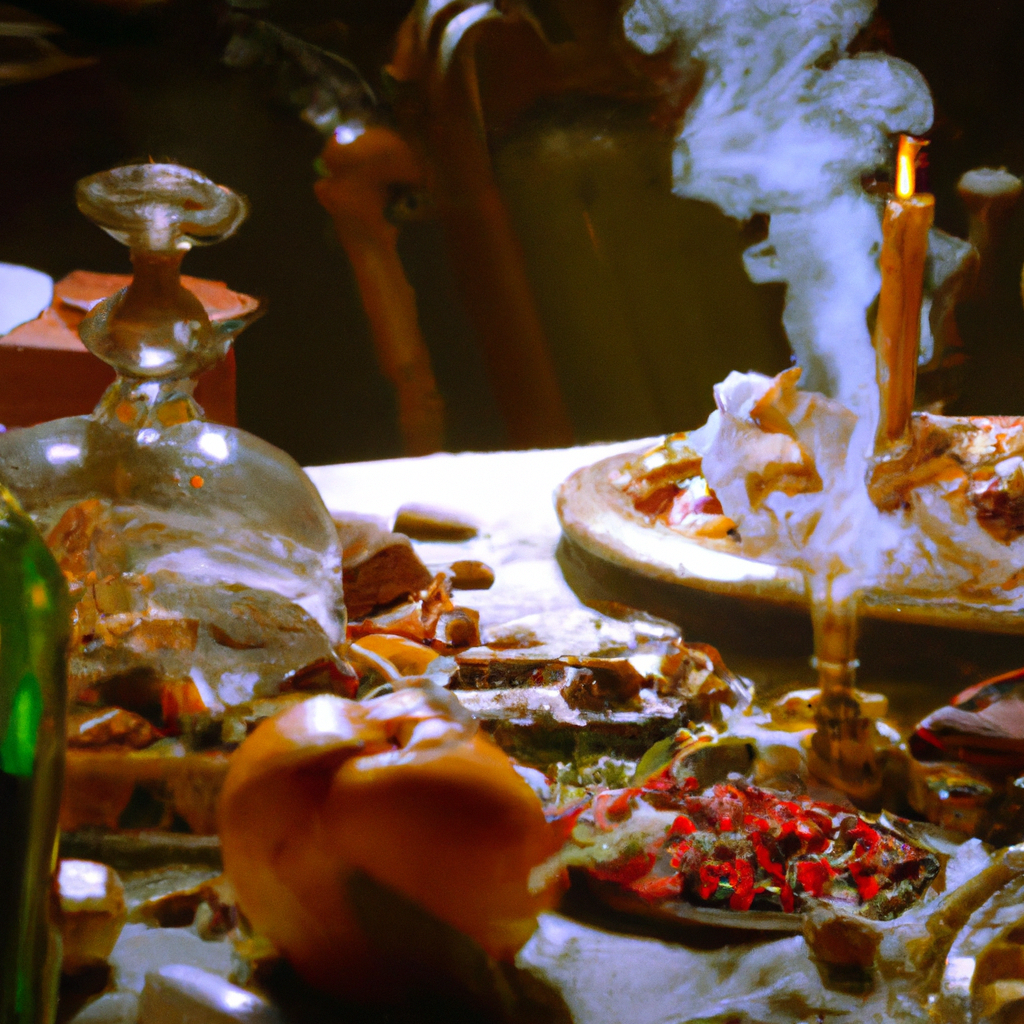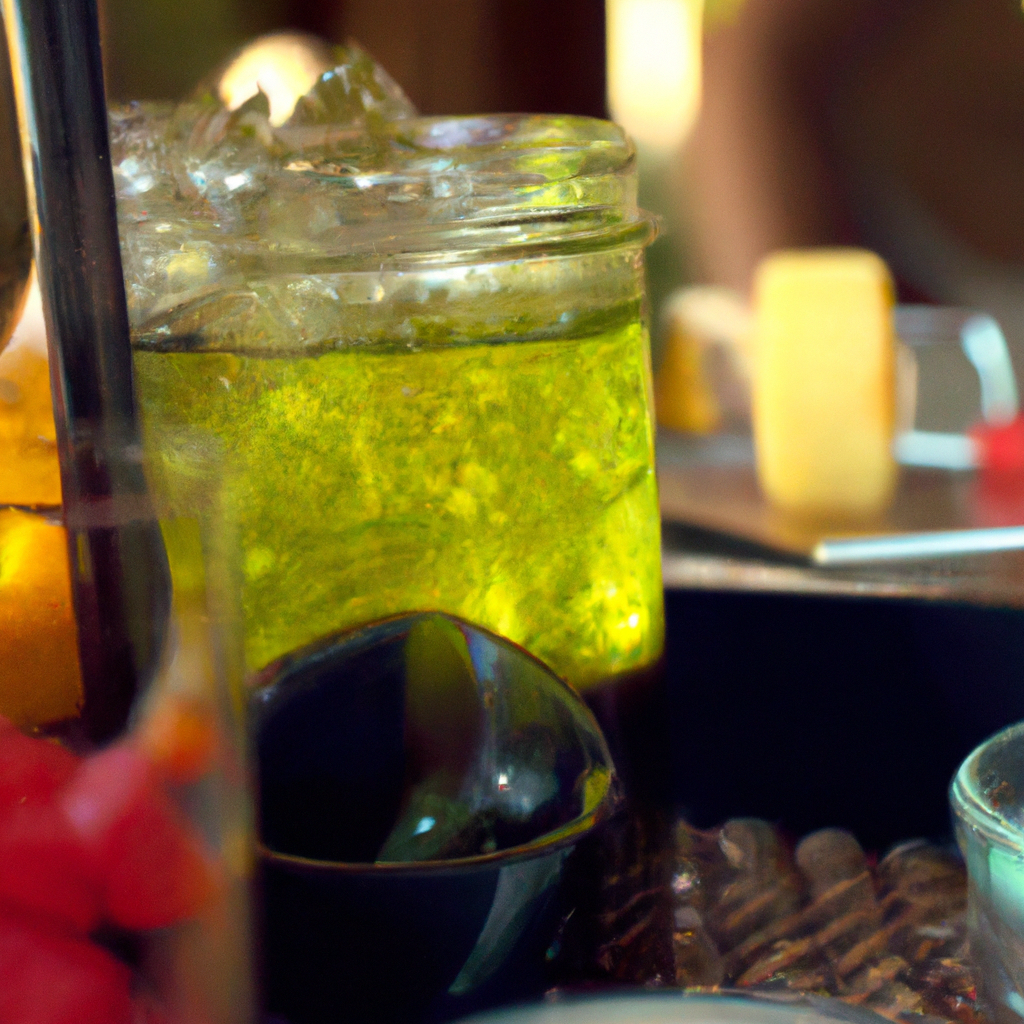
-
Article Summary
- Global Rituals: How Different Cultures Honor the Deceased with Drinks
- Key Takeaways
- Introduction: The Universal Language of Mourning
- The Irish Wake: A Celebration of Life
- Japanese Sake Offering: A Spiritual Connection
- Mexican Day of the Dead: A Feast for the Departed
- Chinese Qingming Festival: An Ancestral Tribute
- FAQ Section
- Why are drinks used in death rituals?
- What types of drinks are used in these rituals?
- Are these rituals still practiced today?
- What is the significance of these rituals?
- How can understanding these rituals foster cultural appreciation?
- Conclusion: A Toast to Life and Death
- Revisiting the Key Takeaways
Global Rituals: How Different Cultures Honor the Deceased with Drinks

[youtubomatic_search]
Key Takeaways
- Drinks play a significant role in death rituals across various cultures worldwide.
- These rituals often serve as a means of connecting with the deceased, expressing grief, and celebrating life.
- Examples of such rituals include the Irish Wake, Japanese Sake Offering, Mexican Day of the Dead, and Chinese Qingming Festival.
- Understanding these rituals can foster cultural appreciation and sensitivity towards different mourning practices.
- Despite cultural differences, the common thread is the use of drinks as a symbolic gesture to honor the deceased.
Introduction: The Universal Language of Mourning
Death is a universal experience, yet the ways we mourn and honor our deceased loved ones vary greatly across cultures. One common thread, however, is the use of drinks in death rituals. From the Irish Wake to the Japanese Sake Offering, drinks serve as a symbolic gesture to honor the deceased, express grief, and celebrate life. This article explores how different cultures around the world use drinks in their death rituals, highlighting the diversity and shared humanity in our approaches to death and mourning.
The Irish Wake: A Celebration of Life
In Ireland, the traditional wake is a time of both mourning and celebration, often accompanied by copious amounts of alcohol. The wake typically lasts for three days, during which family and friends gather to share stories, sing songs, and toast to the deceased’s life. The consumption of alcohol, particularly whiskey, serves as a communal act of remembrance and celebration.
Japanese Sake Offering: A Spiritual Connection
In Japan, sake is often used in Shinto death rituals as an offering to the spirits of the deceased. During the funeral ceremony, family members pour sake into small cups and place them on the altar as a gesture of respect and remembrance. This ritual is believed to help the deceased’s spirit find peace in the afterlife.
Mexican Day of the Dead: A Feast for the Departed
In Mexico, the Day of the Dead (Dia de los Muertos) is a vibrant celebration of life and death. Families create elaborate altars (ofrendas) adorned with the deceased’s favorite foods and drinks, including tequila, pulque, and atole. These offerings are believed to attract the spirits of the departed and encourage them to visit the living.
Chinese Qingming Festival: An Ancestral Tribute
During the Qingming Festival in China, families visit the graves of their ancestors to pay their respects and make offerings. These offerings often include food, tea, and wine, which are poured onto the grave as a sign of respect and remembrance. This ritual is believed to maintain a connection with the ancestors and ensure their well-being in the afterlife.
FAQ Section
Why are drinks used in death rituals?
Drinks are used in death rituals as a symbolic gesture to honor the deceased, express grief, and celebrate life. They can also serve as offerings to the spirits of the deceased or as a means of fostering communal bonding during mourning.
What types of drinks are used in these rituals?
The types of drinks used vary greatly across cultures, ranging from alcoholic beverages like whiskey and sake to non-alcoholic drinks like tea and atole.
Are these rituals still practiced today?
Yes, many of these rituals are still practiced today, although they may have evolved over time due to modern influences and changing cultural practices.
What is the significance of these rituals?
These rituals serve various purposes, including honoring the deceased, expressing grief, celebrating life, maintaining a connection with the deceased, and fostering communal bonding.
How can understanding these rituals foster cultural appreciation?
Understanding these rituals can foster cultural appreciation by highlighting the diversity and shared humanity in our approaches to death and mourning. It can also promote sensitivity towards different mourning practices.
Conclusion: A Toast to Life and Death
From Ireland to Japan, Mexico to China, drinks play a significant role in death rituals across various cultures worldwide. These rituals serve as a means of connecting with the deceased, expressing grief, and celebrating life. Despite cultural differences, the common thread is the use of drinks as a symbolic gesture to honor the deceased. By understanding these rituals, we can foster cultural appreciation and sensitivity towards different mourning practices.
[youtubomatic_search]
Revisiting the Key Takeaways
- Drinks play a significant role in death rituals across various cultures worldwide.
- These rituals often serve as a means of connecting with the deceased, expressing grief, and celebrating life.
- Examples of such rituals include the Irish Wake, Japanese Sake Offering, Mexican Day of the Dead, and Chinese Qingming Festival.
- Understanding these rituals can foster cultural appreciation and sensitivity towards different mourning practices.
- Despite cultural differences, the common thread is the use of drinks as a symbolic gesture to honor the deceased.






